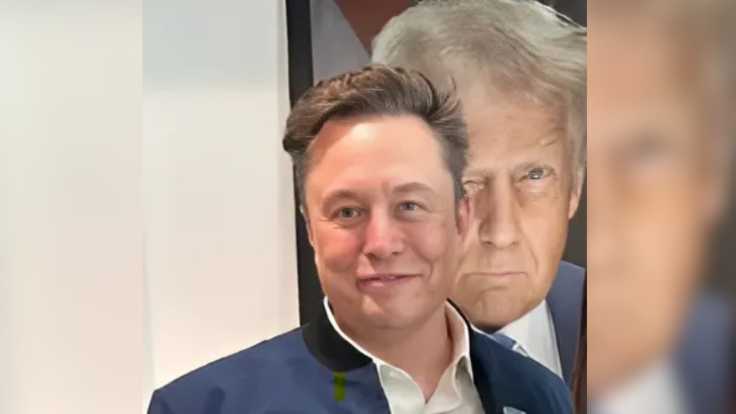
Elon Musk has ignited a fierce political debate in the United States after claiming that former President Bill Clinton's policies were 'essentially MAGA'.
The Tesla and SpaceX chief made the remark on X on Sunday, 28 September, sparking a wave of commentary from political leaders, analysts and journalists across the spectrum.
Within hours, Musk's post had generated more than 210,000 likes and 10,000 replies, with reactions ranging from enthusiastic support to outright dismissal.
Critics branded the comparison provocative and historically misleading, while supporters argued it revealed uncomfortable truths about how far the Democratic Party has shifted left since the 1990s.
Musk's intervention has once again shown the power of social media to reshape political conversation and polarise debate with a single viral post.
Musk's Viral Post
Musk wrote on X: 'Funny to think that Bill Clinton's policies when he was President were essentially MAGA.'
The remark appeared to draw a direct link between Clinton's centrist policies of the 1990s and the populist-nationalist themes of Donald Trump's Make America Great Again movement.
Observers noted that Musk was likely referencing Clinton's 'Reinventing Government' initiative, launched in partnership with Vice President Al Gore.
The programme reduced the federal workforce by about 20 percent, amounting to roughly 351,000 jobs, while cutting regulations and pushing for leaner, more efficient governance.
Musk, who used to head the Department of Government Efficiency (DOGE) before his relationship with President Trump went sour, has often cited similar reforms as a blueprint for his own push to shrink bureaucracy.
'If Clinton and Gore tried those policies today, they'd be branded far-right Republicans,' Musk added in a follow-up exchange with users on X.
Clinton Policies and MAGA Parallels
Musk's comparison revived debate about where Clinton's 1990s policies fit within today's political spectrum.
Clinton's welfare reform bill of 1996, which tightened access to benefits and sought to push recipients into work, was seen as a hallmark of his pragmatic centrism.
MAGA supporters have often echoed similar themes of self-reliance and opposition to long-term government dependency.
Clinton's promotion of the North American Free Trade Agreement (NAFTA) also became a point of contention.
Critics argue that the trade deal hollowed out U.S. manufacturing and shipped jobs overseas, concerns that later became central to Trump's protectionist MAGA message.
Finally, Clinton presided over a period of budget surpluses, marking a rare era of fiscal discipline in Washington.
Many conservatives argue that such policies would be unrecognisable in today's Democratic Party, reinforcing Musk's claim that Clinton's economic agenda has more in common with modern conservatism than liberal progressivism.
Funny to think that Bill Clinton's policies when he was President were essentially MAGA
— Elon Musk (@elonmusk) September 28, 2025
Supportive Reactions
Musk's post was quickly endorsed by several high-profile political figures. Vivek Ramaswamy, a former co-head of DOGE and a former Republican presidential candidate, reposted Musk's message with the comment: 'Elon's right—Clinton's welfare reform and balanced budgets were MAGA in blue clothing. We've come full circle; time to finish the job without the scandals.'
His response, which gathered more than 1,200 likes and 150 replies, reflected their shared push for government cuts but also drew attention to Clinton's personal controversies.
Senator Rand Paul of Kentucky also praised Musk's comparison, framing it as an argument for fiscal conservatism.
'Musk nails it. Clinton/Gore slashed bureaucracy by 20% and ran surpluses—today's Dems call that far-right extremism,' Paul wrote in a lengthy thread.
'MAGA isn't new; it's reclaiming sanity from both parties.' His intervention linked Clinton's record to Paul's own opposition to the Biden administration's spending policies.
Critical Voices
Not everyone was convinced by Musk's attempt to recast Clinton as a proto-MAGA figure. Independent journalist Michael Tracey expressed scepticism about how such a claim would resonate with Trump's base.
'Somehow doubt "Bill Clinton was essentially MAGA" would be legible to most MAGA voters,' he remarked, adding that Musk's comment represented the billionaire's latest pivot 'from tech bro to policy wonk.'
Glenn Greenwald, the political commentator and co-founder of The Intercept, offered a more nuanced view. Sharing Musk's post in a broader discussion about U.S. political shifts, Greenwald argued: 'Musk's take on Clinton as proto-MAGA exposes how the Overton window has shifted left. Remember when balanced budgets were bipartisan? Now it's fascist to even suggest it.'
While supportive of Musk's observation, Greenwald cautioned that framing Clinton in this way could fuel deeper ideological splits within the MAGA movement itself.
Implications for Political Debate
Musk's intervention has underscored how historical presidencies are increasingly reinterpreted through the lens of contemporary politics. Clinton's policies, often hailed at the time as centrist pragmatism, are now being reframed by some as conservative by modern standards.
The suggestion that Clinton's approach fits comfortably within the MAGA framework raises new questions about how America evaluates its political past.
The episode also highlights the growing influence of non-political actors in shaping national debate. Musk, one of the most prominent business figures in the world, has repeatedly used his platform on X to weigh in on contentious political issues. His ability to spark nationwide conversations with a single post demonstrates the blurring boundaries between business, politics and social media.







